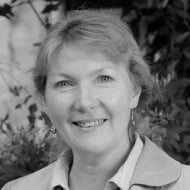The current dash for ‘growth’, based on borrowing ever more to build and buy, seems perverse in the face of how we got into this economic doldrums. We have empty dwellings we can’t sell, even in desirable areas.
Building ever-more new houses, was underwritten by the banks, and is now underwritten more directly by the public purse – that is our public purse, the one with the big deficit already. Public services are already stretched, to the point of disappearing in the case of adult care, rural libraries, buses at night, youth clubs, policing, roads that can cope with the traffic, etc.
Yet, the latest plan proposes more than 42,000 new dwellings in Central Lincolnshire alone, by 2031, or sooner, with a corresponding increase in population. This increase of over 70,000 more people is in part from Lincolnshire, but by far the biggest part, from inward migration from elsewhere.
How can we fund the jobs, services and infrastructure, such as roads, schools, health facilities? Councils have been able to require a “106 contribution”, to provide specifically only the extra infrastructure needed by that particular development, so not enough for big projects such as new roads, new schools, new sewage works.
That is in addition to the new jobs needed and expecting councils to provide for the extra people. Local tax is only a very small part of the public money spent locally. The rest comes from central government – a diminishing pot, so there is a shortfall on every new addition.
To add to the coffers, in 2010 Councils were granted the ability to charge a “roof tax”, called an community Infrastructure levy, based on the size of the new dwellings built. Some councils are already charging it. To make it affordable, the plan is for developers to negotiate the land price down by the corresponding amount. Building fairly dense housing estates on farmland is obviously the most profitable.
But Central Lincolnshire is not expecting to bring in the charge until well into 2014. So literally hundreds of dwellings in open countryside are coming forward for development, before the charge comes in — 348 were approved at NKDC this week alone.
A call for land has brought forward enough to swamp us. The Joint Planning Unit with 12 representatives from four councils has the decision-making power to create a whole set of policies against which all other applications are compared. This is called the Core Strategy.
A District or City Council may hesitate in formally giving permission as an application comes through, but will be overruled by the government Inspectorate, if the site is already allocated by the twelve councillors. The much-anticipated neighbourhood plans can only ask for more development, not less. And do we rest once the first five years’ land is allocated? No, I am told, we seek the next tranche.
Even if it were allocated from the outset, the CIL money is not enough. The Central Lincolnshire WPV and CIL Viability Study explains; “To support the delivery of the planned growth, there is an estimated infrastructure funding gap of over £350 million.” Worse, the developers frequently plead that they cannot afford to provide what is needed, so councils let them off. That means the service will not be provided, or you and I will have to eke out the resources further.
We need to link the building of houses to the essential infrastructure. It cannot be right to continue to build unviable developments which increase traffic and place unaffordable demands on the rest of us.
The result will be damage to our environment and way of life by suburbanising our county, largely to relieve overspill from London and the southeast of England, and not to support our own needs which are being met adequately by existing modest development. Let’s focus instead on getting our businesses thriving to provide the jobs and money we need, and only build the houses to match.
The Joint Planning Unit has been working on this for years, and I have only just been given a place as a reserve member – so wish me luck!
Marianne Overton is the Independent County and District Councillor for Navenby and Branston District and the Cliff Villages. Also leader of the Lincolnshire Independents, a county-wide support network. Twice elected national Leader of the Independent Group of councillors for England and Wales and Vice Chairman of the Local Government Association.





